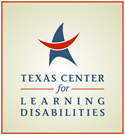Principal Investigators
- Dr. Paul T. Cirino, University of Houston
Additional Investigators
- Dr. Marcia A. Barnes, The University of Texas Health Science Center at Houston
- Dr. Greg Roberts, The University of Texas at Austin
Purpose
Multiple cognitive processes are related to academic outcomes in learning disabilities (LDs), but how such processes influence academic skill, and/or whether academic skill learning changes cognitive processes, is unclear. From 2011 to 2016, Project 2 examined executive function and its relation with academic skill. Based on a rich database that included 27 measures of executive function (EF) from seven domains on approximately 850 students in grades 3 through 5, this research established a framework for EF and evaluated the way that EF influences reading.
Building on this prior work, the focus of Project 2 for the current funding period (2017–2022) is to examine the role of attention in relation to reading and other academic skills for Spanish-speaking ELs in the middle school grades, both struggling and nonstruggling readers. We focus on attention for the following reasons:
- Cognitive attention is a “hub” ability that fosters development of higher cognitive functions.
- Behavioral attention difficulties often co-occur with academic difficulties.
- Attention may have both “state-like” and “trait-like” properties, but little research has evaluated these aspects of attention for students with and without learning difficulties.
- Visual attention and internal control over attention have been implicated in word reading and reading comprehension, but the nature and size of these relations in children with reading difficulties are unclear.
- There is a mismatch between the rich theoretical work on attention, particularly cognitive attention, and the bulk of the research that focuses on the relation of behavioral attention and academic performance.
- Individuals who are proficient in multiple languages may have stronger attentional control, though much less is known about the way such relations may hold in the present context.
Aims
- Examine how multiple attention types interact with multiple academic skills over time by assessing them longitudinally, for students with and without reading difficulties
- Analyze in detail the specific contribution of both visual attention and “internal” attention to reading and other achievement outcomes
- Address the structure of attentional constructs to one another and to closely related constructs (e.g., processing speed, working memory) and clarify the role of attention for academic skill in the context of well-established predictors (e.g., language)
Publications
View publications related to this project in our research library.
